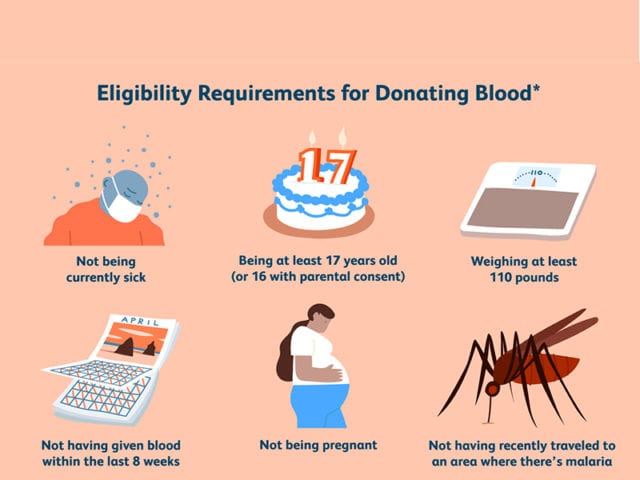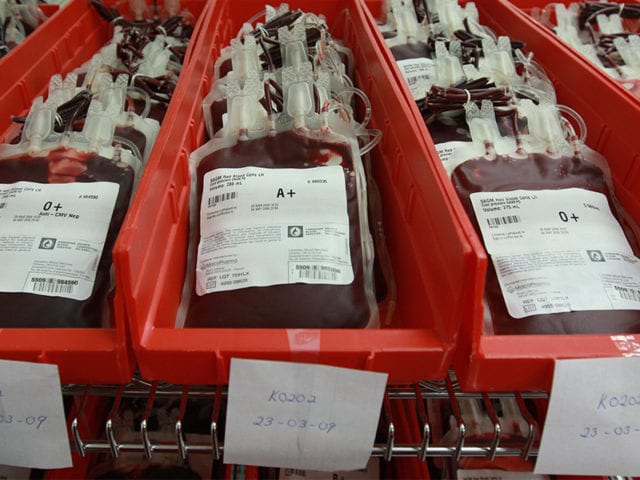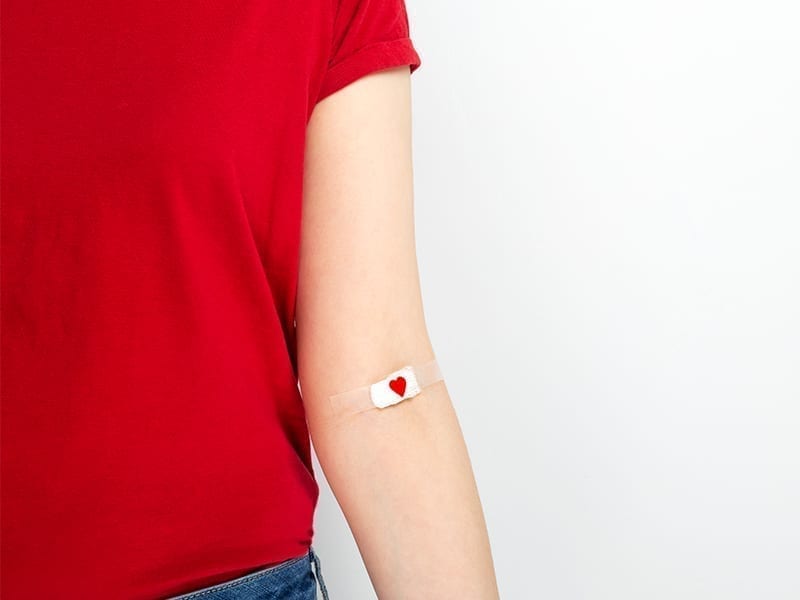From 2004, 14th June is celebrated as World Blood Donor Day every year. This awareness campaign comes from the World Health Organisation (WHO) and the theme of 2020 is: Safe Blood Saves Lives. The idea is to encourage individuals to donate blood and make the world a healthier place by ensuring there is an ample quality supply of blood for those in distress.
Indian Mindset On Women Blood Donations & Donations In General
Often considered a manly act, it’s usually men who donate blood while women are thought to be weak(er) and discouraged from doing the same. They’re also asked to refrain from donating because of the stigma around period blood.
Other misconceptions include beliefs like blood donation will contaminate their breast milk, or leave them too weak to care for their children and the household. And these are just some of the many reasons why India has among the lowest female blood donors in the world.
Did You Know?
The first-ever data on the gender distribution of blood donations in India revealed that only 6% of blood donors were women.
— 2008, World Health Organisation
In fact, Indians usually only donate blood because they’re required to replace it in exchange for the blood used for the treatment of loved ones, friends, and family. Even when blood donation drives are mobilized, they have very few donors because of a number of misconceptions. People worry about the hygiene of needles and blood collection, they believe blood donation will compromise their immunity, or that the body will never be able to replace the blood they donated again.
As Women, Are You Eligible To Donate Blood?

Not just women, most people can donate blood if they don’t have any underlying conditions. But, there are some specifics when it comes to women donating blood that you should make note of. These include:
- A woman should be between 18-65 years of age to donate blood.
- You should weigh at least 50kgs; not be underweight for your height and age.
- You should pass the pre-test for blood donation where they will screen you for high blood pressure and diabetes. Donors may be allowed if they’re within permissible limits.
- Women who have PCOS or endometriosis can donate blood if they’re not in pain. Their medications may be checked at the time.
- While women can donate blood when they’re menstruating, it is usually discouraged because blood loss of any kind reduces the iron levels in your body. So if you have a heavy flow, donating blood can make you feel unwell. It is also not advisable if you’re taking pain medication for your periods.
- Women who are pregnant, breastfeeding, or have had a miscarriage in the last 6 months cannot donate blood.
- Women who are undergoing IVF (In-Vitro Fertilisation) treatment cannot donate blood.
- You can’t donate blood for 24 hours after drinking alcohol, and up to 48 hours if you’ve had drugs of any kind.
- Women need to wait 6 months after a body piercing and 1 year after getting a tattoo to donate blood.
- Gay women can donate blood, but gay men can’t.
- You cannot donate blood if you’ve tested positive for HIV.
- You cannot donate blood if you have a fever, an infection, a chronic disease or are feeling unwell in general.
- You should not be anemic or have blood disorders of any kind.
- You can’t donate blood for 6 months after a Hepatitis-B vaccination.
- Major surgeries, including dental procedures, make you an ineligible blood donor for 1 month.
- You cannot donate blood if you’ve previously received a blood transfusion.
- You should inform the healthcare professional about your travel history. If you’ve recently travelled to countries where mosquito-related infections are prevalent like malaria, dengue, Zika, etc, they may advise you a ‘wait period’ before blood donation.
Why Should You Donate?

India has among the world’s largest shortages of blood supply, according to a study in the scientific journal The Lancet. As of 2019, the shortfall of 41 million units across the Indian States suggests that demand is 400% more than the supply.
Did You Know?
Blood donations dropped from 38,189 units in February to 26,741 units in March, due to Covid-19. Also, voluntary donations have gone down by almost 100% during the pandemic.
— National Blood Transfusion Council
A single round of blood donation can save up to three lives. In fact, it’s used to help people in various states of distress like:
- Pregnant women who have complications during delivery and may need surgical intervention
- Women with childbirth-associated blood loss
- Newborns who are anaemic, or children who are malnourished
- Patients undergoing surgery or advanced medical procedures
- Patients with blood disorders, bone marrow disorders, or inherited haemoglobin disorders
- Patients with immune deficiency conditions
- Patients who are dependent on blood transfusions because of liver disease or kidney disease
- People who have Thalassaemia, Haemophilia, or Sickle Cell Disease
- Patients who have been in accidents or are in emergency rooms due to blood loss
- Some cancer patients
What Are The Dos & Don’ts Before & After Blood Donation?

- Make sure there you’ve eaten within 2 hours before giving blood, and drink enough water so that you’re properly hydrated. This will help stabilize blood sugar and minimize the chances of feeling dizzy or light-headed once you’ve donated.
- Remove the bandage after 6 hours to allow for proper clotting of the blood. If you’re still experiencing bleeding, see a doctor and inform the blood donation centre immediately.
- Usually, the collection centre will offer you a beverage and some biscuits before you leave. Do consume this food, and follow up the next few days with a diet rich in iron to replenish the nutrients that were lost during donation much faster.
- You can go about your daily work after 30 minutes of rest, but avoid any heavy lifting, hot showers, rigorous exercise, and even intense sex that day. Also, avoid smoking or driving immediately.
FAQs – Frequently Asked Questions
Q. How much blood is taken & how frequently can I donate?
About 470ml of blood is taken in a single donation. (It’s a little less than a pint.) The body will replenish the plasma you lose during donation within 48 hours. It takes between 4-8 weeks for the body to replace the red blood cells you lost. Because women have lower hemoglobin than men, they can donate blood every 16 weeks (about 3 times a year), while men can donate every 12 weeks.
Q. Does my blood group matter?
All blood groups can donate as long as they meet the criteria. However, certain blood groups are in high demand because they’re rare (like B negative, “Bombay” Oh, and RH blood types). And, certain blood groups are particularly useful because they can donate to multiple blood types like O+ can donate to A+, B+, AB+ and O+, while blood group O- can donate to A+, A-, B+, B-, AB+, AB-, O+ and O-. These blood groups can help save lives during a shortage, or if the patient’s blood group is uncertain.

